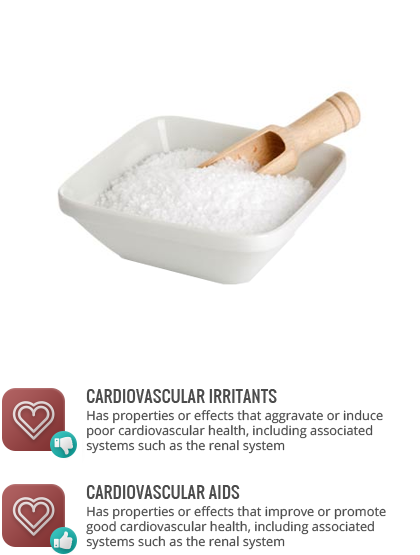Sodium
Definition
Sodium is an element essential to human life, including transmission of nerve impulses and regulation of blood pressure. Table salt is comprised of sodium and chloride ions. Sodium chemically enhances flavor perception and is added to a variety of foods to improve flavor and act as a preservative.
Health considerations
Excessive (>2,300 milligrams a day) is associated with hypertension and an increased risk of heart failure. The minimum requirement of sodium is 500 milligrams per day. Insufficient intake can cause hyponatremia, with severe health effects. Physical exertion increases sodium requirements.
Keep in mind
The majority of sodium in the diet comes not from table salt but from sodium within processed foods. Evidence suggests that otherwise healthy individuals have a greater tolerance for increased sodium intake.
May be found in
Fruits, vegetables, salt, processed foods, canned foods, processed meat, preserved and pickled foods, dairy products, baking powder, baking soda, soy sauce, seafood
References
European Journal of Public Health
JAMA Network
JAMA Network 2


